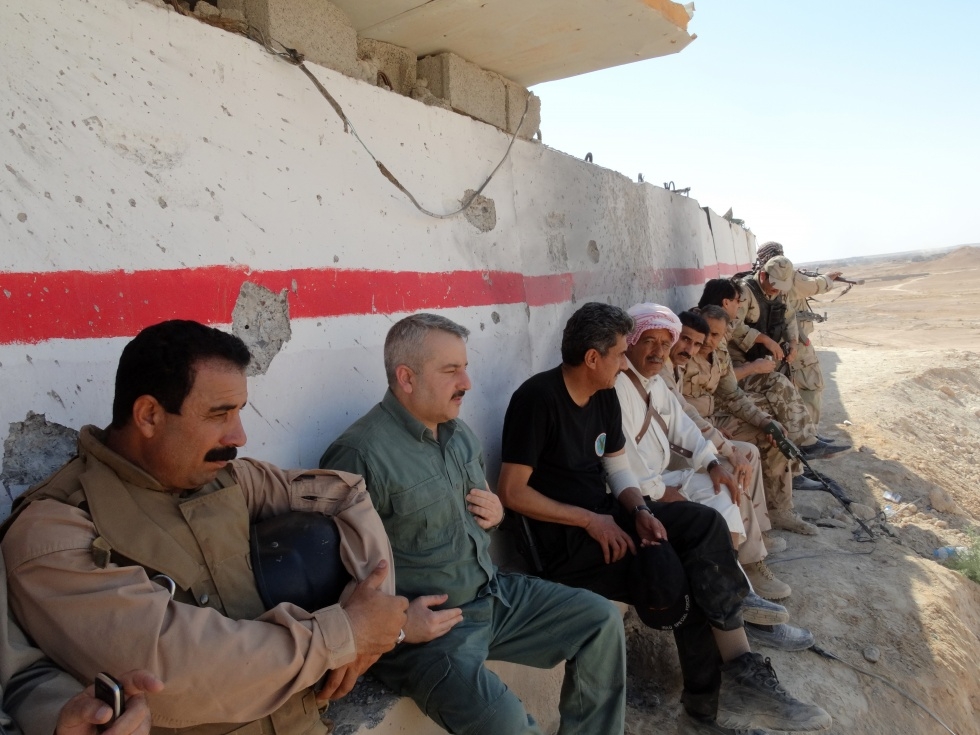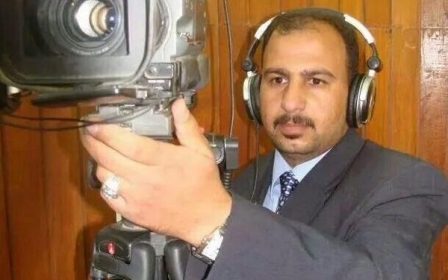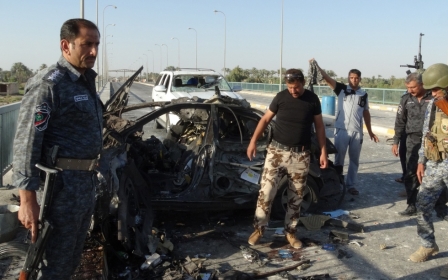Islamic State fighters seize city in Anbar, threaten to take entire province

Iraqi government troops on Monday lost further ground to Islamic State (IS) fighters in the beleaguered Anbar province, leaving it on the precipice of falling completely to the militant group.
Soldiers stationed on the edge of Heet, west of Anbar’s provincial capital Ramadi, have withdrawn to another base, leaving the city under the control of IS, security sources said on Monday.
IS fighters had assaulted and eventually seized the centre of the western city on the Euphrates river, but a sizeable contingent of government forces remained holed up in a nearby base.
"Iraqi forces evacuated Heet training camp last night [Sunday] on the orders of the military command," a senior police official in Ramadi told AFP.
"Our military leaders argued that instead of leaving those forces exposed to attacks by IS, they would be best used to shore up the defence of Asad air base," he said.
Ahmed Hamid, who heads the Anbar provincial council's security committee, said around 300 members of the security forces pulled out of the Heet training academy a few kilometres northwest of the city.
Asad is a large base northwest of Heet and one of the last still under government control in the restive western province. It is surrounded by desert and a tougher target for IS fighters.
Other security officials said military aircraft picked up senior officers from the Heet base, and the rest of the force drove in a convoy to Asad.
They set fire to trailers and other infrastructure before abandoning the base. Witnesses told AFP IS fighters took over what was left of the camp on Monday morning.
"Heet is now 100 percent under IS-control," the police colonel said.
Government forces have suffered a string of setbacks in Anbar in recent weeks. Its police chief Major General Ahmed Saddag was killed by a roadside bomb on Sunday, a significant loss as he had been playing a key role in the anti-IS fight.
“The police chief was leading forces involved in an operation to retake Twei,” from IS, Colonel Abdulrahman al-Janabi, told AFP on Sunday, adding that four other police officers had been wounded on the attack near Ramadi.
Iraqi analysts have warned IS are now dangerously close to the capital.
“If the Islamic State controls Anbar, they would be able to threaten serious targets in Baghdad,” Saeed al-Jayashi, an Iraqi security expert, told the Washington Post Friday.
“The government would lose the Haditha dam, and the security forces would have to retreat,” he said. “There would be a bloodbath.”
“They’re so close to Baghdad now,” said Sajad Jayid, research fellow at the Iraqi Institute for Economic Reform. “I mean, they are have always been around but they are now literally a 20 minute drive away [from Baghdad].”
The vice-president of Anbar’s provincial council Faleh al-Issawi told the Times of London last week Anbar province could entirely “fall in 10 days” to IS. The provincial council has written to Iraqi central government and requested US ground troops to aid the fight against IS, local channel al-Sharqiyah has reported.
Iraqi Prime Minister Haider al-Abadi has previously ruled out US ground troops returning to Iraq and American President Barack Obama has similarly said he will not be sending combat soldiers to the country.
However, American officials have warned the province is on the edge of falling completely under the control of IS.
“It’s tenuous there,” said a senior defence official, who spoke on condition of anonymity. “They are being resupplied and they’re holding their own, but it’s tough and challenging.”
“I think it’s fragile there now.”
Dozens of US-led air strikes in recent weeks in western Iraq, including near the city of Ramadi, have helped counter the IS fighters and the capital Baghdad remained secure, the official said.
IS has so far failed to take the strategic Haditha dam, Iraq’s second largest, with coalition bombing raids helping the Iraqi government fend off militant assaults.
But the situation has illustrated how the Iraqi troops are far from an effective fighting force and in urgent need of training, officials said.
New MEE newsletter: Jerusalem Dispatch
Sign up to get the latest insights and analysis on Israel-Palestine, alongside Turkey Unpacked and other MEE newsletters
Middle East Eye delivers independent and unrivalled coverage and analysis of the Middle East, North Africa and beyond. To learn more about republishing this content and the associated fees, please fill out this form. More about MEE can be found here.




